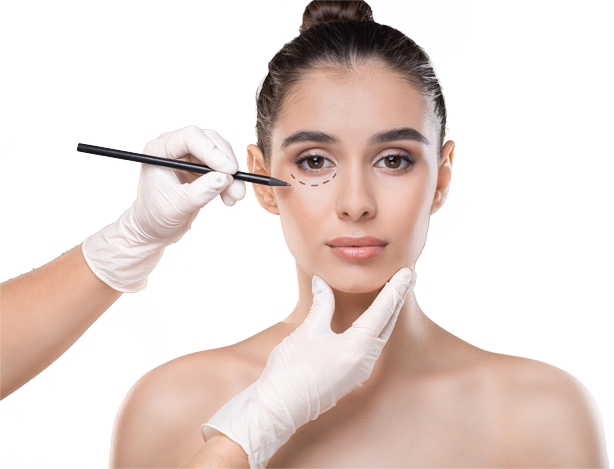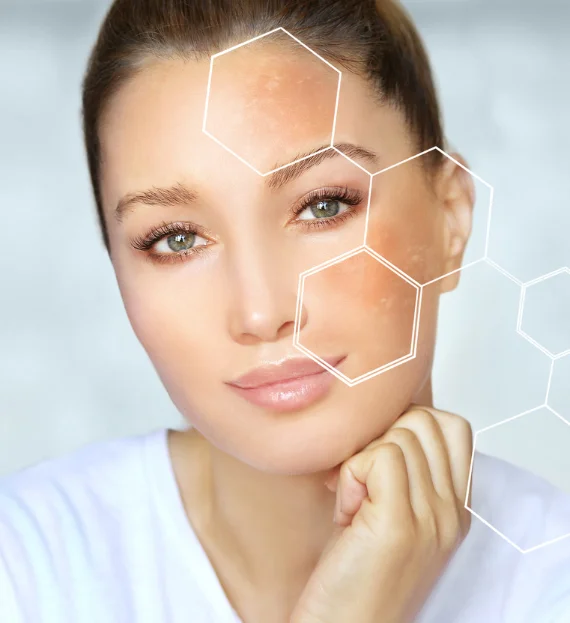Skin lightening
Most Popular Procedures
Skin lightening refers to the use of products or treatments to reduce the amount of melanin in the skin, which can help to lighten the skin tone. While skin lightening can be done for cosmetic reasons, it can also be used to address hyperpigmentation or other skin conditions. Here are some common methods of skin lightening:
Topical creams: There are several topical creams available that can help to reduce the amount of melanin in the skin. These creams often contain ingredients like hydroquinone, retinoids, or kojic acid.
Chemical peels: Chemical peels involve applying a chemical solution to the skin to remove the top layer, which can help to reduce the appearance of hyperpigmentation.
Laser therapy: Laser therapy can be used to target and break up areas of hyperpigmentation in the skin.
Microdermabrasion: Microdermabrasion involves using a special device to remove the outer layer of skin, which can help to reduce the appearance of hyperpigmentation.
Skin lightening
Multiple Treatment Options
Natural remedies: Some natural remedies, such as lemon juice or turmeric, may have skin-lightening properties. However, it’s important to use caution when using these remedies, as they can be irritating to the skin and may not be effective for everyone.
It’s important to note that skin lightening can carry certain risks, such as skin irritation or damage, and should be done under the guidance of a dermatologist or other healthcare professional. Additionally, it’s important to consider the cultural and social implications of skin lightening, as it can perpetuate harmful beauty standards and discrimination
Faq
Frequently Asked Questions
A. Skin lightening refers to the use of products or treatments to reduce the amount of melanin in the skin, which can help to lighten the skin tone.
A. Some people use skin lightening products for cosmetic reasons, while others use them to address hyperpigmentation or other skin conditions.
A. Common methods of skin lightening include topical creams, chemical peels, laser therapy, microdermabrasion, and natural remedies.
A. Yes, skin lightening can carry certain risks, such as skin irritation or damage, and should be done under the guidance of a dermatologist or other healthcare professional.
A. Some natural remedies, such as lemon juice or turmeric, may have skin lightening properties. However, it's important to use caution when using these remedies, as they can be irritating to the skin and may not be effective for everyone.
A. Yes, it's important to consult a dermatologist or other healthcare professional before using skin lightening products. They can help to determine the cause of your hyperpigmentation and recommend appropriate treatments.
A. Skin lightening can perpetuate harmful beauty standards and discrimination, and it's important to consider these implications before choosing to lighten your skin tone.






